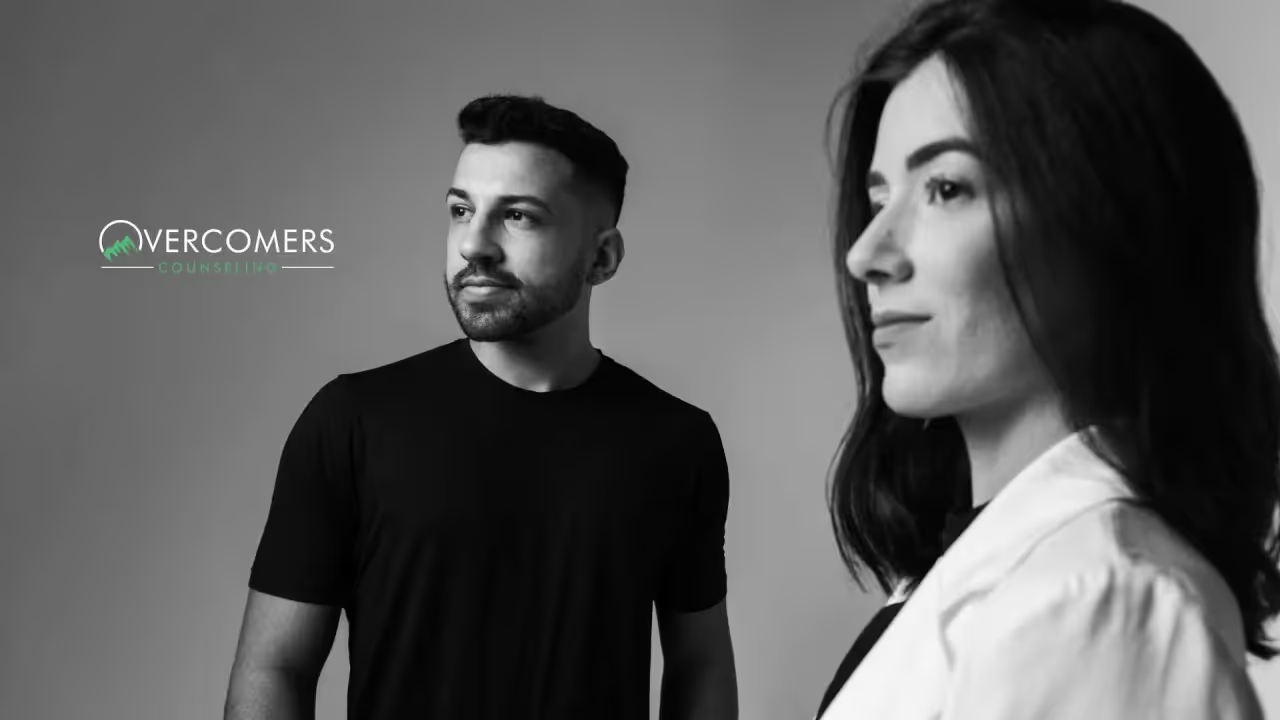IntroductionPicking the right couples therapist is important for successful therapy. Finding someone who suits your needs makes sure both partners feel...

Picking the right couples therapist is important for successful therapy. Finding someone who suits your needs makes sure both partners feel comfortable and supported during the process. Couples therapy offers numerous benefits, including improved communication, better conflict resolution skills, and a deeper emotional bond. As Helen Keller said, "Alone we can do so little; together we can do so much." With the right support, you can strengthen your bond and deepen your connection.
Finding the right couples therapist begins with a clear understanding of what you and your partner hope to achieve through therapy. This clarity will guide your search for a therapist whose expertise aligns with your specific goals.
Short-Term Goals
Short-term goals are immediate issues that you would like to address within a few sessions. These could include improving communication, resolving a specific conflict, or gaining insight into particular behaviors.
Improve Communication - Many couples seek therapy to enhance their communication skills. This might involve learning how to express feelings more openly or listen more effectively.
For example, if one partner feels unheard during discussions, therapy can offer strategies to improve active listening and empathy.
Resolve a Specific Conflict - This could be anything from disagreements about finances to differing parenting styles. A therapist can help mediate these disputes and find common ground.
For instance, if a couple frequently argues about household chores, a therapist can help them establish a fair and balanced plan.
Long-Term Goals
Long-term goals focus on broader, ongoing improvements in the relationship. These goals aim at creating lasting changes that prevent future conflicts and foster a healthier partnership.
Strengthen Overall Relationship - Couples often look to build a stronger, more resilient relationship. This can involve deepening emotional connections, rebuilding trust, or enhancing intimacy.
Prevent Future Conflicts - Another long-term goal is to learn ways to avoid future conflicts. This involves handling disagreements calmly, setting clear boundaries, and making sure both partners feel respected.
For example, a couple might identify what upsets each other and create strategies to prevent arguments from getting worse.
Example:
Understanding Each Other's Love Languages Better
A practical example of identifying goals in couples therapy is the desire to understand each other's love languages better. The concept of love languages, introduced by Dr. Gary Chapman, suggests that people express and receive love in different ways—such as words of affirmation, acts of service, receiving gifts, quality time, and physical touch. For instance, a couple might discover through therapy that one partner feels most loved when they receive words of affirmation, while the other values acts of service.
Recognizing and respecting these differences helps partners express their affection in meaningful ways.
Therapist Gender
Some people may feel more at ease with a therapist of a specific gender. This comfort can influence how openly you share your thoughts and feelings.
For example, one partner might feel more comfortable discussing sensitive issues with a female therapist, while the other prefers a male therapist for a different perspective.
Therapeutic Approach
Different therapists use various methods to help couples. Two common approaches are Cognitive-behavioral therapy (CBT) and Emotionally-focused therapy (EFT).
Cognitive-behavioral therapy (CBT) - CBT helps identify and change negative thoughts and behaviors.
It's practical and goal-oriented, teaching couples skills to handle their problems. A couple who argues frequently might learn to spot negative thoughts and replace them with positive ones.
Emotionally-focused therapy (EFT) - EFT aims to improve the emotional bond between partners. It helps couples understand their emotional responses and create secure connections.
For instance, a couple experiencing emotional distance could find EFT helpful in restoring their intimacy and trust.
Finding the right therapist starts with knowing where to search. Online directories are excellent resources for locating therapists specialized in couples therapy. Additionally, seeking referrals from friends, family, or primary care doctors can lead to trusted recommendations. After identifying potential therapists, it's crucial to verify their credentials to ensure they are qualified to provide the necessary support. Start by checking if the therapist is licensed by your state's regulatory board, which confirms that they meet professional standards.
Moreover, membership in professional associations, such as the American Association for Marriage and Family Therapy (AAMFT), indicates a commitment to ongoing education and ethical practice.

Location
When picking a therapist, think about location and availability. A convenient office location can make it much easier to stick to your therapy sessions. Choosing a therapist close to your home or work can make it easier to fit therapy into your day. Flexible hours, like evenings or weekends, can also help ensure sessions don't clash with your other commitments.
Cost and Insurance
Cost and insurance are important when picking a therapist. Knowing the session fees and if they offer sliding scale options based on your income can help you manage costs. It's also worth checking if the therapist accepts your insurance to minimize out-of-pocket costs.
When comparing potential therapists, it helps to make a list of your preferences and criteria. This can include factors like their specialization, availability, and location. After comparing these aspects, you can make a final decision based on who best meets your needs. The first session is important for starting therapy right. It's time to talk about your goals and what you hope to achieve. As therapy goes on, it's important to check your progress regularly and adjust your goals if needed. For instance, after a few sessions, you should evaluate whether the therapy is meeting your expectations and be open to modifying the approach if necessary.
Finding the right couples therapist involves a few key steps. Begin by identifying what you need, including the therapist's specialization, location, and availability. Make sure to consider practical details like cost and insurance coverage to keep therapy affordable. Compare different therapists based on these factors and choose the one that fits best.
When you start therapy, set clear goals and regularly check your progress to see if any changes are needed. At Overcomers Counseling, our skilled couples therapists are dedicated to helping you strengthen your relationship. With a wide range of specializations and flexible scheduling options, we make it easy to find a therapist who fits your needs. Our team is committed to providing compassionate and effective therapy to help you and your partner overcome challenges and build a stronger connection. Choose Overcomers Counseling for professional and supportive couples therapy.
Trust is built over time through positive experiences and interactions. However, it can be difficult to say how long it will take to build trust in a particular relationship as it varies from couple to couple.
Overthinking can have a negative impact on your relationship, leading to feelings of anxiety, insecurity, and low self-esteem. By working to overcome overthinking in your relationship, you will be able to reduce stress and cultivate trust and security with your partner. This can help strengthen the bond between you and create a more positive and meaningful connection.
In order to improve your communication with your spouse, you need to be open to change.This means being willing to change the way you communicate, as well as the way you think about and handle conflict.It is also important to be patient when communicating with your spouse. This means taking the time to listen to what they have to say and trying to understand their point of view. Lastly, it is important to be respectful when communicating with your spouse. This means using kind words and avoiding put-downs or criticisms. When you are open to change, you can learn new ways of communicating that can improve your marriage.
If your spouse is resistant to treatment, you might need to get help from a professional. An interventionist can work with you and your family to plan a confrontation that will encourage your spouse to seek help.
Yes, trust can often be rebuilt if it is damaged in a relationship. This process may take some time and effort, but it is possible to regain trust.
It's common for people to have occasional worries or doubts in their relationship. However, if you find yourself constantly overthinking or obsessing about your relationship to the point where it's affecting your daily life and causing you significant distress, it may be helpful to seek support from a therapist or counselor.